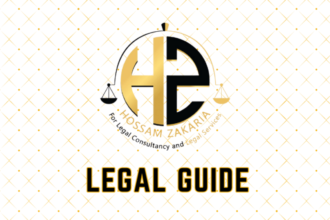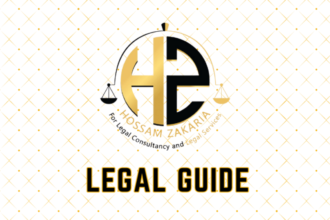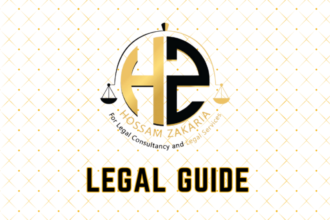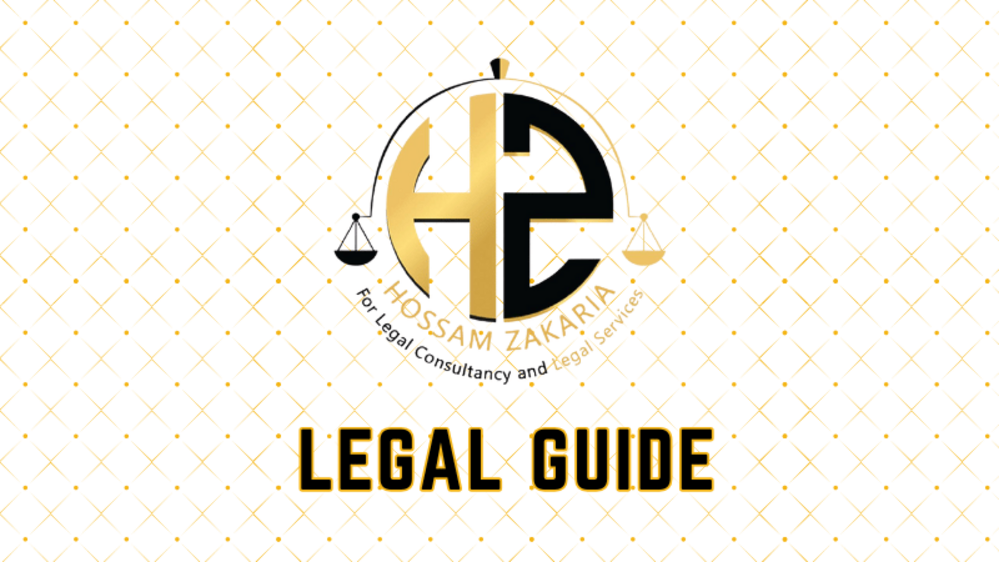Introduction: Navigating the Gulf’s New Legal Reality
As economic activity across the Gulf Cooperation Council (GCC) intensifies, cross-border business between the United Arab Emirates (UAE) and the Kingdom of Saudi Arabia (KSA) is reaching unprecedented heights. Yet with opportunity comes complexity, particularly in dispute resolution. The international arbitration landscape in Saudi Arabia has changed dramatically in recent years, integrating best global practices and introducing robust legal reforms. For UAE businesses, understanding these developments is essential—not only to ensure effective risk management but also to seize the region’s dynamic commercial potential. This article offers in-depth consultancy-grade analysis of international arbitration legal frameworks in Saudi Arabia, providing UAE enterprises with actionable insights and compliance strategies tailored for 2025 and beyond.
Recent legislative reforms in both the UAE and KSA—such as the Federal Decree-Law No. 6 of 2018 on Arbitration (UAE Arbitration Law) and the Saudi Arbitration Law issued by Royal Decree No. M/34 of 1433H—have harmonized many aspects of arbitration between these leading economies. Understanding these frameworks is crucial for senior executives, legal officers, and corporate counsel engaged in cross-border deals, joint ventures, and investments across the Gulf. This comprehensive article will guide you through the legal intricacies and practical considerations vital for navigating international arbitration in Saudi Arabia, directly impacting UAE businesses operating, contracting, or investing within the Kingdom.
Table of Contents
- Overview of International Arbitration Frameworks in Saudi Arabia
- The Evolution of Arbitration Law in Saudi Arabia: Key Legislative Milestones
- Key Provisions of Saudi Arbitration Law and Cross-Border Applicability
- Comparison: Saudi Arabia and UAE Arbitration Laws
- Practical Challenges and Strategic Insights for UAE Businesses
- Case Studies: Arbitration Scenarios Impacting UAE-KSA Cross-Border Transactions
- Risks of Non-Compliance and Legal Compliance Strategies
- Future Trends and Best Practices for UAE Businesses
- Conclusion: Proactively Embracing Reform
Overview of International Arbitration Frameworks in Saudi Arabia
Strategic Importance of Arbitration in Cross-Border GCC Operations
International arbitration has emerged as the dispute resolution mechanism of choice for multinational entities and regional champions alike. For UAE businesses, the ability to resolve disputes in a neutral, enforceable, and confidential manner significantly mitigates risk and preserves commercial relationships across the GCC. The legal infrastructure supporting arbitration is particularly crucial for the UAE’s investors and contracting parties with Saudi counterparts, given the volume and value of cross-border deals in construction, energy, retail, and finance.
Legal Infrastructure: KSA’s Commitment to International Standards
Saudi Arabia’s longstanding adoption of the New York Convention on the Recognition and Enforcement of Foreign Arbitral Awards (1958), in force for the KSA since 1994, signals its alignment with international norms. However, the real shift occurred with the Saudi Arbitration Law (promulgated by Royal Decree No. M/34 of 1433H [2012]) and the Enforcement Law (Royal Decree No. M/53 of 1433H [2012]), which together have modernized the dispute resolution ecosystem and promoted judicial support for arbitral awards, both foreign and domestic.
The Evolution of Arbitration Law in Saudi Arabia: Key Legislative Milestones
Prior Framework: The Civil Procedure System
Historically, arbitration in Saudi Arabia was governed primarily under the Civil Procedure System, which subjected arbitral awards to extensive judicial review and often subordinated contractual autonomy to mandatory Sharia principles. This resulted in skepticism among foreign investors regarding the enforceability of arbitration agreements and awards. For UAE-based businesses, this uncertainty introduced layers of legal risk when engaging Saudi partners.
The Turning Point: Saudi Arbitration Law of 2012
The enactment of the Saudi Arbitration Law in 2012 marked a watershed, modernizing and harmonizing arbitration procedures with global best practices and the UNCITRAL Model Law. The Law’s official text is available through the Saudi Ministry of Justice portal (moj.gov.sa). Key features include:
- Explicit recognition of party autonomy, permitting foreign parties to choose the law and seat of arbitration.
- Limitation of judicial intervention to narrowly defined circumstances.
- Broader enforceability of both domestic and international arbitration awards within Saudi courts, underpinned by the Enforcement Law and alignment with the New York Convention.
Recent Developments: Institutionalization and Digitalization
Saudi Arabia’s institutional reforms, specifically the launch of the Saudi Center for Commercial Arbitration (SCCA) in 2016, have further professionalized the sector. SCCA offers administratively efficient, globally benchmarked arbitration and mediation services with rules aligned to international standards—a crucial consideration for UAE companies seeking a trusted venue for dispute resolution.
Key Provisions of Saudi Arbitration Law and Cross-Border Applicability
Scope and Applicability
The Saudi Arbitration Law applies to all arbitration proceedings where the seat is in Saudi Arabia, or where parties agree to its application. The law covers commercial disputes, including those with elements of foreign ownership or cross-border transactions, provided the agreement is in writing.
Party Autonomy and the Choice of Law
Unlike the previous regime, the 2012 Law explicitly empowers parties to determine the procedural rules, language, seat (location), and governing law of arbitration, subject to non-contravention of Saudi public policy and Sharia principles. While the Law is flexible, certain mandatory rules—such as in banking, insurance, and labor—remain subject to special sectoral regulations.
Validity and Enforceability of Arbitral Awards
Under Article 50 of the Law, arbitral awards are recognized and enforced in Saudi courts, provided they are not in violation of Sharia public policy. Awards rendered in accordance with foreign law or seated abroad may also be enforced, benefiting from streamlined processes introduced by the Enforcement Law and judicial guidelines issued by the Ministry of Justice.
Judicial Supervision and Grounds for Challenge
Although Saudi courts maintain jurisdiction to set aside awards on limited grounds (such as procedural irregularity, incapacity, or public policy infringement), the Law restricts review of merits, reflecting an international trend toward finality and efficiency.
Comparison: Saudi Arabia and UAE Arbitration Laws
Why a Comparative View Matters
For UAE entities, comprehensive understanding of both jurisdictions enables optimal contract drafting, dispute planning, and forum selection. Harmonization between KSA and UAE laws has improved enforceability, but critical distinctions persist on issues such as public policy, Sharia compliance, and the treatment of non-signatory parties.
Visual: Penalty and Procedural Comparison Table
| Feature | Saudi Arbitration Law (2012) | UAE Arbitration Law (Federal Decree-Law No. 6/2018) |
|---|---|---|
| Party Autonomy | Extensive, subject to Sharia/public order | Extensive, subject to UAE public policy |
| Arbitral Institutions | SCCA, others permitted | DIAC, ADGM, DIFC-LCIA, ICC, etc. |
| Enforcement of Foreign Awards | Strong under New York Convention (with Sharia caveats) | Strong under New York Convention (with public order caveats) |
| Judicial Review Scope | Narrow: aligns with UNCITRAL, Sharia checks remain | Narrow: aligns with UNCITRAL, public order checks remain |
| Language of Arbitration | By party agreement | By party agreement |
| Timeframe for Award Challenge | 60 days from notification | 30 days from notification |
| Mandatory Registration/Approval | No registration, SCCA optional | No registration, court deposit of award for enforcement |
| Statutory Exclusions | Bankruptcy, some labor, personal status | Personal status, criminal, public policy, bankruptcy |
| Non-Signatory Enforcement | Strict; generally not admitted | Emerging case law allows in exceptional cases |
Analytical Insights
This table highlights procedural parallels resulting from alignment with the UNCITRAL Model Law. Remaining divergences, especially regarding Sharia/public policy and procedural technicalities, should inform contract drafting and forum selection. For UAE clients, an arbitration clause should be carefully reviewed by counsel with knowledge of both jurisdictions to avoid unintended unenforceability.
Practical Challenges and Strategic Insights for UAE Businesses
Challenge 1: Sharia Compliance and Public Policy Reservations
Even post-reform, Saudi courts retain the right to annul arbitral awards that breach Sharia-based public policy. This latitude introduces a degree of legal unpredictability, especially for UAE businesses unfamiliar with Saudi jurisprudence. Examples include interest (riba), penalty clauses, and insurance disputes.
Challenge 2: Enforcement Delays and Local Dynamics
While procedures are now codified, enforcement may be delayed by additional documentation requests or technicalities—a risk magnified if the award challenges prevailing local interpretations. Practically, parties should ensure that all arbitration agreements specify clear governing law, dispute resolution institution, and procedural language to limit scope for judicial re-interpretation.
Challenge 3: Sector-Specific Regulatory Overlay
Certain disputes—most notably in insurance, employment, and bankruptcy—remain partially or wholly excluded from arbitration under KSA’s sectoral laws. UAE businesses active in these fields should seek specialized legal advice and consider alternate dispute resolution mechanisms where appropriate.
Consultancy Recommendations
- In cross-border contracts, always obtain dual legal review (Saudi and UAE counsel) for the arbitration clause.
- Wherever possible, select a neutral seat (potentially outside KSA or UAE if parties can agree) to enhance certainty and neutrality.
- Leverage institutional rules (such as SCCA or DIAC) to benefit from established procedures and reduced court intervention.
Case Studies: Arbitration Scenarios Impacting UAE-KSA Cross-Border Transactions
Case Study 1: Construction Dispute—Award Enforcement Delayed Over Public Policy
A UAE contractor, awarded significant damages in an SCCA-administered arbitration seated in Riyadh, faced an enforcement challenge in Saudi courts. The respondent argued that certain damages (liquidated damages and interest) contravened Sharia principles. While the main award was upheld, interest and certain penalties were struck down. This case exemplifies the importance of tailored contract drafting and understanding the nuances of Sharia-compliant damages in Saudi enforcement proceedings.
Case Study 2: Retail Franchise Dispute—Utilizing the New York Convention for Foreign Award Recognition
A UAE-based franchisor obtained an ICC award seated in Paris concerning unpaid royalties from a Saudi franchisee. The franchisor’s legal team secured enforcement via the Saudi Ministry of Justice’s Enforcement Court in under six months, demonstrating the practical value of the New York Convention’s direct effect when formal requirements are met and when the subject matter does not trigger public policy or restricted sector exclusions.
Case Study 3: Energy Joint Venture—Strategic Selection of Arbitration Seat
Two UAE EPC providers involved in a Saudi joint venture pre-emptively agreed that disputes would be arbitrated under LCIA rules, seated in Dubai, but governed by substantive Saudi law. This strategic configuration benefitted from modern UAE arbitration practice, international neutrality, and minimized exposure to local enforcement risks, as assets were located in the UAE and internationally rather than the KSA. This demonstrates creative compliance and risk mitigation via thoughtful seat and institutional selection.
Risks of Non-Compliance and Legal Compliance Strategies
Risks of Non-Compliance
- Unenforceable Awards: Awards containing elements contrary to Sharia/public policy can be partially or fully vacated in Saudi courts, even where the arbitration is otherwise valid.
- Delays and Additional Litigation: Poorly drafted arbitration clauses or failure to meet local procedural requirements can result in costly parallel litigation or protracted enforcement timelines.
- Loss of Commercial Leverage: Failure to anticipate sectoral restrictions may force businesses into less favorable judicial forums, impacting negotiation leverage and dispute outcomes.
Strategies for Legal Compliance—A Checklist
| Compliance Item | Best Practice |
|---|---|
| Arbitration Clause | Dual-jurisdiction legal review, specify institutional rules, seat, language, governing law |
| Contract Damages | Ensure damages/penalties are Sharia-compliant and clearly defined |
| Filing & Documentation | Prepare certified translations, original contracts, and evidence per Saudi court requirements |
| Sectoral Analysis | Confirm arbitration is permitted for the contract’s subject matter |
| Institutional Rules | Utilize established arbitration institutions (e.g., SCCA, DIAC) to minimize procedural disputes |
Suggested Visual Placement: Compliance checklist (table above) could be integrated as a downloadable resource for clients or highlighted in a sidebar for quick reference.
Future Trends and Best Practices for UAE Businesses
Continued Legal Harmonization and Digitalization
Looking ahead, both Saudi Arabia and the UAE are deepening cross-border arbitration cooperation and introducing digital platforms for filing, hearing, and enforcement—a trend accelerated by the COVID-19 pandemic and reflected in recent Ministry of Justice circulars. This digital transformation will further streamline processes for UAE businesses, particularly those familiar with the UAE’s eCourt systems and virtual arbitration hearings via the Dubai International Arbitration Centre (DIAC) and Abu Dhabi Global Market (ADGM).
Emphasis on Professionalization and Capacity Building
The professionalization of arbitration forums—evident in the growth of the SCCA and the adoption of international codes of conduct for arbitrators—ensures higher standards and predictability. Continuous education of in-house legal teams and external counsel is therefore recommended for UAE businesses engaging in complex Saudi transactions.
Practical Recommendations
- Monitor updates to arbitration laws and enforcement procedures, via authoritative portals like the Saudi Ministry of Justice and the UAE Federal Legal Gazette.
- Invest in tailored internal compliance training focused on GCC cross-border dispute resolution and sectoral restrictions.
- Engage proactive contract risk audits and scenario planning to stress-test key arbitration clauses before finalizing contracts.
Conclusion: Proactively Embracing Reform
Saudi Arabia’s reformed arbitration landscape, now harmonized with international norms, presents both opportunity and complexity for UAE businesses. The operational reality is improved—but only for those who embrace informed, proactive legal compliance. By aligning cross-border contracts with Saudi and UAE law, leveraging institutional arbitration, and building robust internal compliance mechanisms, UAE businesses can confidently navigate the evolving GCC landscape and secure their investments for 2025 and beyond. Legal advisors remain essential for ongoing updates and bespoke guidance, ensuring each transaction captures the full value of reform while mitigating new and legacy risks.
Key Takeaway: The trajectory of arbitration reform in Saudi Arabia and the UAE is profoundly positive for regional business—but proactive, detail-oriented compliance is indispensable. For tailored guidance or arbitration clause reviews, consult a legal expert with experience across both jurisdictions to maximize enforceability and commercial certainty.



